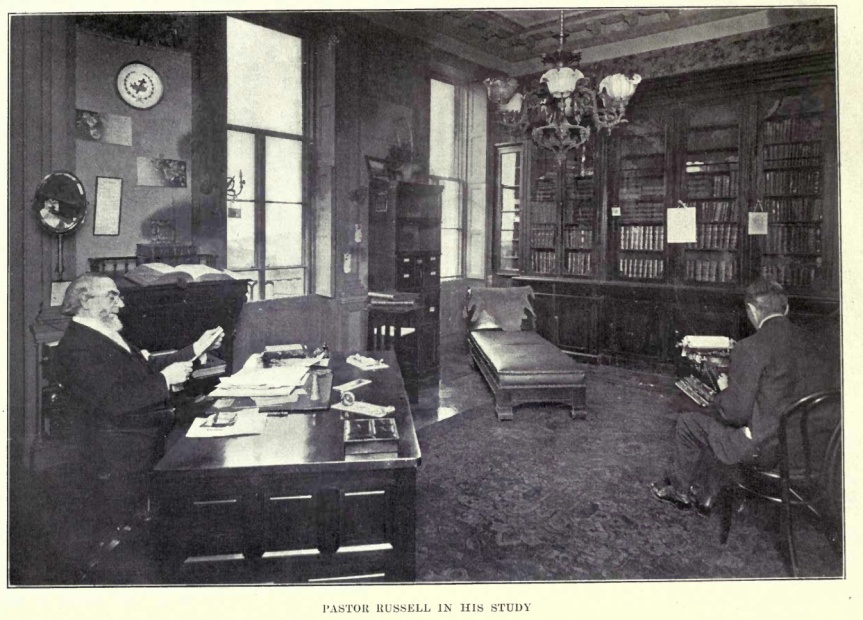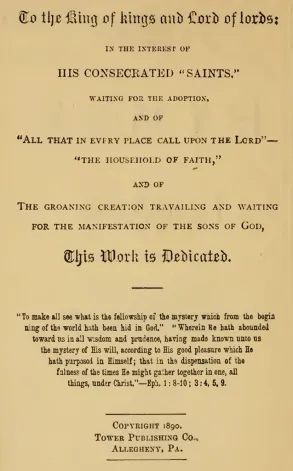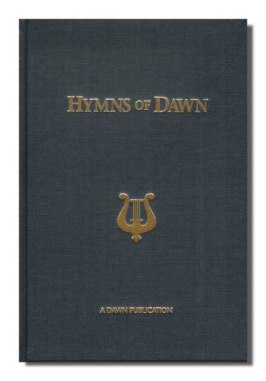
There are two miraculous feedings of the multitudes, recorded among the Gospel accounts in the New Testament. As suggested in what follows, these two occasions appear to represent a blessing for the Church at the beginning of the Gospel Age, and another blessing at the end of the Gospel Age.
The Number Two
The Gospel Age is often represented by the number 2, or its greater magnitudes 20, 200, 2,000. A 20-cubit length for the Holy of the Tabernacle fits the symbolism. Perhaps two is used because the fruits of this age of the spirit are nourished by the two sources of instruction, the Old and New Testaments. The following examples of two in the Bible all relate in one way or another to the Gospel age, or to the nourishment and care of the saints during it —
- two fishes (Matthew 14:17)
- two pence (Luke 10:35)
- 20 years oppression by Jabin (Judges 4:3)
- 20 years of Samson (Judges 15:20)
- 20 years of the ark at Kirjath-Jearim (1 Samuel 7:2)
- 200 pennyworth of bread (Mark 6:37)
- 200 cubits to shore (John 21:8)
- 2,000 cubits from the ark to the Israelites (Joshua 3:4)
*******
In the 1st miraculous feeding of a multitude, 5000 men were fed with 5 loaves of bread and 2 fishes (Matthew 14:13-21, Mark 6:30-44, Luke 9:10-17, John 6:1-15).
In the 2nd miraculous feeding, 4000 men were fed with 7 loaves of bread and 2 fish (Matthew 15:29-39, Mark 8:1-10).
*******
The Bread
- John 6:35, 48 — Jesus explains he is “the bread” of life.
- Matthew 26:26 — “this is my body.”
- 1 Corinthians 10:16, 17 — “Is not the cup of blessing which we bless a sharing in the blood of Christ? Is not the bread which we break a sharing in the body of Christ? Since there is one bread, we who are many are one body; for we all partake of the one bread” (NASB).
- 1 Corinthians 11:26 — This verse concerns the Lord’s memorial which we daily remember as we sojourn in the footsteps of our Master. The fully consecrated receive the benefits of Christ’s sacrifice for us, and also share in his sufferings. “We are the children of God … if so be that we suffer with him, that we may be also glorified together” (Romans 8:16, 17). We mortify the fleshly mind, and renew the new mind in Christ (Romans 8:13).
Our share in these benefits, and experiences, are memorialized together with other ecclesia members in our annual observance of the memorial supper of Jesus’ sacrifice — receiving the bread, and drinking the “fruit of the vine.” It is an opportunity for us to renew our consecration vows, with our fellow yoke bearers around us.
*******
The Fish
The fish came to symbolize a Christian, since the Greek letter alpha (Α or α) looks like this image below and “alpha,” the first letter of the Greek alphabet, is mentioned in Revelation 22:13 as one of the descriptions of Jesus.

From the 2nd, 3rd, and 4th centuries, the symbol of a fish was used to represent Christians. Partly this drew from the two miracles of Jesus in which fishes were multiplied to feed his followers.
The word for “fish” is spelled in Greek as iota-chi-theta-upsilon-sigma. These are the first letters in the Greek words for Jesus, Christ, God’s, Son, Savior — thus brief for “Jesus Christ is God’s Son, our Savior.” (See Wikipedia, “Ichthys”).
Fish are mentioned and given symbolic meaning several times in the Gospels.
(1) Matthew 13:47-50 — The parable of the dragnet.
(2) Matthew 17:24-27 — The coin in the fish’s mouth.
(3) Matthew 12:38-45 — Jesus would be in the heart of the earth for three days, as Jonah was in the belly of the fish for three days.
(4) John 21:11 — The harvest of the saints is represented in the 153 fish.
(5) Matthew 4:19 — Jesus commissioned his disciples to be “fishers of men.”
*******
Feeding of the 5000
The two feedings of the multitudes with fish and bread represent Jesus feeding the Church at and following the two advents of Christ.
- The bread apparently represents the “bread of life” (John 6:35), Jesus.
- As fish can represent either Jesus, or his disciples, in this case it seems the fish given to the multitudes also represents Jesus as our life-giver, andsustainer, through his redemption.
Who was fed —“5000 men besides women and children” (Matthew 14:21, NIV). Five seems to be a number associated with the new creation. Perhaps this is because we are developed through the holy Spirit, two, and the blood of redemption, three, and the sum of these is five. As there were five posts at the entrance to the holy, so here we have 5000 men being fed, in a picture of the beginning of the Gospel Age.
Other related uses of the number five are —
- Matthew 25 — Five wise virgins.
- Genesis 41:34 — In the time of Joseph one part in five of the grain was saved up for a time a need.
- Numbers 31:27-31 — God’s share of the goods collected by the Israelites was one part out of 50, or out of 500, depending on the circumstance.
As with the 2, 20, 200, and 2,000, this meaning of the number also pertains to various orders of magnitude: 5, 50, 500, and 5,000.
12 baskets of “broken pieces” (NIV), “fragments that remained” (KJV) at the end of the first feeding — the remainder perhaps represents that the teachings of the 12 apostles were the resource for feeding the Church after Christ’s first advent.
Five barley loaves —
- Barley represents Jesus.
- Barley was the first crop of the year, and Jesus was raised on the day of the barley waving (Leviticus 23:11). Five in this case may pertain to Jesus as part and leader of the New Creation.
Green “grass” (Matthew 14:19, Mark 6:39) — Suggests the new age of life then just opening.
After the first feeding — Jesus went to the mountain alone (Matthew 14:23) representing that Jesus after his first advent went to heaven alone (1 Thessalonians 4:16, John 14:6).
*******
Feeding of the 4000
The 2nd feeding, this time of 4000, is recorded in Matthew 15:29-39 and Mark 8:1-10.
Who was fed — “4000 men, beside women and children” were fed with 7 loaves of bread and “few little fishes” (Matthew 15:34), or “a few small fishes” (Mark 8:7). (The Alexandrian text says “two fishes” in Mark, but this may be a transcription error remembering the two fishes in the first case.)
Four represents judgment, and the harvest period of the Gospel Age is a time of judgment for the saints. As there were four posts at the end of the holy, so these 4000 men picture a time in the ending period of the Gospel Age.
Time Period: The 2nd feeding refers to Jesus Christ’s second presence, his “parousia” since 1874.
7 baskets of: “broken pieces” (NIV) — Perhaps shows that during the harvest, we have the accumulated benefit of the seven messengers (See the Book of Revelation) of the Church. Brethren sometimes have small variations of opinion about the specific identification of these messengers. The following is our best understanding —
(1) Messenger for the Church of Ephesus (AD 33-73) = the Apostle Paul.
(2) Messenger for the Church of Smyrna (AD 73-325) = the Apostle John.
(3) Messenger for the Church of Pergamos (AD 325-1157) = Arius.
(4) Messenger for the Church of Thyatira (AD 1157-1517) = Peter Waldo (supplemented by John Wycliffe).
(5) Messenger for the Church of Sardis (AD 1517-1667) = Martin Luther.
(6) Messenger for the Church of Philadelphia (AD 1667-1874) = William Penn.
(7) Messenger for the Church of Laodicea (AD 1874-2043) = Charles Taze Russell.
Seven loaves — Perhaps identifying Jesus, the bread of life, as the perfect one (seven). Or perhaps indicating that he is the bread of life for the Church that is depicted in Revelation as in seven stages (of the Church) through the Gospel Age.
After the 2nd feeding — Jesus took his apostles with him, representing the Church “going with him.” They are raised to life from the return of Christ forward, until the end of the Harvest, and will be with Christ thereafter.
*******
Lessons From These Two Miraculous Feedings
What lessons can be learned from Jesus’ two feedings with the loaves and fish?
(1) The numbers of men are given, but there were also “women and children” fed as well. Perhaps the men represent the consecrated ones, and the unnumbered additional ones represent the “household of faith” who believe in Jesus, and have faith in him as the “bread of life,” but are less committed.
(2) A lesson of humility.
- Plain, humble common food was provided. Perhaps we also should not concentrate our efforts on elaborate provisions, but be grateful for meeting the basic needs of life.
- We should focus more on what comes out of our mouths than what we put into them.
- Our desires should be plain and simple — to do the will of the one who hath called us out of darkness into his marvelous light, and run the race with cheerful patient endurance. Let us fix our eyes on Jesus, who for the hope set before him endured the cross. “Set your eyes on not what is seen but what is unseen,” and run in so as to gain the prize of the High Calling.
“Delight thyself also in Jehovah, and He shall give thee the desires of thine heart” (Psalm 37:4). These hopes and promises, with reverent prayer, are the best analgesia and safety against adversity. The tests of Faith will qualify us as members of the Bride class, to be sympathetic priests for the world during the Millennium.
(3) These comparisons between feedings help us see the benefit of Present Truth for the saints during the Harvest of the Gospel Age, since 1874, before the blessing of the world comes.
(4) We need not wait for someone to ask us for “food of Truth,” but like the disciples of Jesus, we are to feed others by offering the words of life to them that we have been blessed with.
“He said unto them, Give ye them to eat” (Luke 9:13).
Even if inconvenient for the flesh, do not decline to give help, show compassion, and offer the Truth of God’s love and plan. The fruits of the Spirit in Galatians 5:22-23 includes kindness and long-suffering — hence it involves spiritually “feeding” others at the expense of our own comfort.
There is a saying:
“To the world you may be one person,
but to one person you may be the world.”
If we think our “feeding” does not bring results, or that this or that other Brother or Sister in Christ should or could do more spiritual “feeding,” yet if we gladly accept the Lord’s prompting to proceed in the effort, spiritual blessings will follow.
(5) A lesson of not to be anxious about the cares of life (Matthew 6:31), for “God will supply every need of yours according to his riches in glory in Christ Jesus” (Philippians 4:19). In Matthew 15:32 we read, “Jesus called his disciples unto him, and said, I have compassion on the multitude, because they continue with me now three days, and have nothing to eat: and I will not send them away fasting, lest they faint in the way.” Similarly, in our experiences of life, our Heavenly Father’s just and loving provisions of meeting our essential needs of life, reflect His compassion and merciful aid of help through Christ, the captain of our salvation. By the full surrender of our will to the will of God, we learn to trust in God’s perfect plan and depend on the Giver of all good things to supply us with what He sees is best for the New Creature in Christ (James 1:17).
——————————————-
Below is an extract from “Discourses by Robert S. Seklemian” — (http://www.heraldmag.org/olb/contents/treatises/seklemians%20discourses.htm).
Lessons from the Feeding
Now let us consider the lessons contained in the feeding of the multitude. First, we can make a personal application. When the disciples reminded Jesus what a large quantity of bread would be required, Jesus asked, “How many loaves have ye? Go and see” (Mark 6:38). The disciples returned and said to Jesus, “There is a lad here which hath five barley loaves, and two small fishes. But what are they among so many?” (John 6:9). Someone may say, “My talents are so few and so small. What are they among so many? There are so many who have so much more than I have.” But what did Jesus tell his disciples when they reported their meager resources? “Bring them hither to me” (Matthew 14:18).
The Lord wants you.
He will accept your small offering of five barley loaves and two small fishes.
He can greatly multiply the effects of your small efforts in ways you never dreamed of.
“Bring them hither unto me!”
If nothing else give a little word of encouragement to someone, a little smile. Write a little letter of cheer and consolation, a little visit to someone sick or suffering. Give a little witness to a neighbor or relative. Put a tract under someone’s door. Build someone up a little in the truth. Let your light, dim though it be, shine out just a little in the darkness of this world. If you can do nothing else, offer a little prayer for the harvest work.
These are small things but they are things the Lord can bless and use.
If we cannot do them all, we can do some of them, at least one of them.
The Lord can greatly amplify their effect just as he increased the loaves and fishes.
Let us bring the Lord ALL we have whether great or small.
There is another more general application of this incident. Jesus said:
“Ye shall be witnesses unto me, both in Jerusalem, and in all Judea, and in Samaria, and unto the uttermost part of the earth” (Acts 1:8).
“This gospel of the kingdom shall be preached in all the world, for a witness unto all nations, and then shall the end come” (Matthew 24:14).
“The gospel must first be published among all nations” (Mark 13:10).
It seems to me that a mere circulation of the Bible without explanation does not completely fulfill this requirement. It must be the gospel of the Kingdom which Jesus preached because he plainly said, “THIS gospel of the Kingdom.”
Have there been any missionaries since the early church who have preached the Millennial Kingdom of Christ beside Brother [Charles Taze] Russell and those with him?
“Gospel” means “good news.”
Certainly the hell-fire doctrine preached by nominal church missionaries is not the good news which must be published among all nations. The handful of true Christians today who have the true gospel may say, “Lord, this task is too great for us. What are we among so many? We cannot reach them all. Let others feed them. Let them just take the Bible and find their own spiritual food therein.”
But Jesus says to his people:
“Give ye them to eat!”
“Others do not have the truth, the gospel of the Kingdom. Others cannot feed them like you can.”
We may answer, “But Lord, we are so few, and have very limited resources. We have only five barley loaves and two small fishes! We do not have enough!”
“Bring ALL you have to me,” Jesus answers, “I will bless what you have, and make it do. It will be more than enough. There will even be some left over.”
Miracles of Our Day
In the account Jesus performed a staggering miracle and the multitude ate and were filled. What a magnificent fulfillment of this we now see possible with only a limited expenditure of money aptly comparable to only five barley loaves and two small fishes. By an equally staggering miracle — that of radio, television, tapes, and mass media, facilities Brother Russell never had — the power to give a tremendous, worldwide public witness is now in our hands! Instead of thousands, millions can be fed with the sound, satisfying message of truth, the true gospel. Many ecclesias are taking full advantage of these opportunities. Although we are not seeking to convert the world, but only to garner the wheat, who can say what a powerful effect our sowing of the seed of truth may have in preparing the hearts of men to receive the blessings of the kingdom?
Then there is still another application of this event. That multitude that Jesus fed also pictures the world during the Millennial Age. As Jesus gave the bread to his disciples to pass on to the people, those who are now the Lord’s faithful disciples will in the Kingdom be the dispensers of this Bread of eternal life to all the families of the earth. Jesus told the multitude later:
“The bread of God is he which cometh down from heaven, and giveth life unto the world” (John 6:33). The Church glorified will be the channel through which the merit of Jesus’ sacrifice will be applied to the world. As the hungry multitude ate all they wanted and were filled, life will then be freely dispensed to all the willing and obedient. We read of that time: “The Spirit and the bride say Come. And let him that heareth say, Come. And let him that is athirst come. And whoever will, let him take the water of life freely” (Revelation 22:17).
*******
The URL of this post:
https://biblestudentsdaily.com/2018/01/31/jesus-feeds-the-multitudes-with-fish-and-loaves-of-bread/







